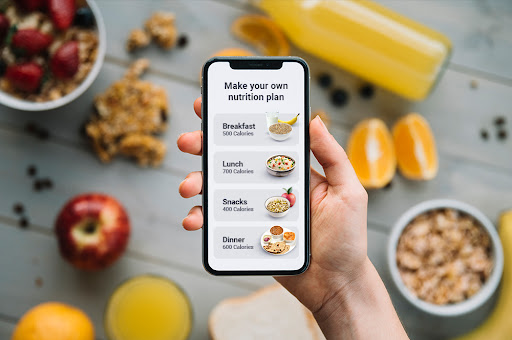Your health is your wealth, and at the heart of a healthy lifestyle lies one essential factor—nutrition. But with so much conflicting information out there, it’s easy to feel overwhelmed. The good news? Building a strong foundation in proper nutrition doesn’t have to be complicated.
This guide breaks down the basics of nutrition, explains how the right diet impacts your health, and provides actionable steps to optimize your eating habits. Whether you’re looking to boost energy, manage your weight, or simply take the first step toward a healthier lifestyle, this post has you covered.
What is Nutrition and Why Does It Matter?
Nutrition is the fuel that powers your body. The food you eat provides the nutrients your body needs to function, repair itself, and maintain energy throughout the day. A balanced diet that focuses on nutrient-dense foods forms the foundation for everything—from achieving fitness goals to preventing chronic diseases.
When you prioritize proper nutrition, you equip your body to perform at its best. It’s the key to better focus, improved mood, and overall wellness.
The Basics of Nutrition
Before optimizing your diet, a basic understanding of nutrition is crucial. This can largely be broken down into macronutrients and micronutrients.
Macronutrients
These are nutrients needed in large amounts that provide energy:
- Carbohydrates: Your body’s main energy source, found in foods like fruits, vegetables, grains, and legumes.
- Proteins: Necessary for muscle building and repair, sourced from meat, fish, eggs, dairy, and plant-based options like lentils and tofu.
- Fats: Essential for absorbing vitamins and fueling your body, including healthy fats from nuts, seeds, fish, and avocados.
Micronutrients
These are vitamins and minerals your body needs in smaller amounts:
- Vitamins: Compounds like vitamin C and vitamin D support your immune system and bone health.
- Minerals: Elements like iron, calcium, and potassium help regulate bodily functions and maintain strength.
Balancing these components ensures your diet is both nourishing and energizing.
How Diet Impacts Your Health
Your diet affects nearly every aspect of your well-being. Here’s how proper nutrition directly influences your daily life:
- Weight Management
Consistently consuming a balanced diet helps maintain a healthy weight. Incorporating nutrient-dense foods reduces the temptation to overindulge in unhealthy snacks, creating a natural balance.
- Energy Levels
Ever felt sluggish after a heavy meal? That’s often due to low-quality, nutrient-poor foods. Whole grains, proteins, and healthy fats provide sustained energy throughout the day—goodbye, 3 PM energy crashes.
- Disease Prevention
Eating the right foods can lower your risk of chronic diseases. Diets high in fruits, vegetables, and fiber are proven to reduce the risk of heart disease, diabetes, and certain cancers.
Real-Life Examples to Inspire You
Need proof that proper nutrition works? Take Maria, a 32-year-old entrepreneur who swapped her fast-food lunches for meal-prepped salads. Within months, her energy levels soared, she lost 15 pounds, and her focus during work improved drastically. Small changes can lead to incredible transformations.
How to Optimize Your Diet
Start building habits that prioritize health and well-being with these actionable tips:
1. Plan Your Meals
Planning meals ahead of time prevents impulsive (and unhealthy) food choices. Spend a few hours on Sunday prepping ingredients to set yourself up for a successful week.
2. Practice Portion Control
Even healthy foods can hinder your progress if you overeat them. Use portion control methods, like dividing your plate into sections for protein, veggies, and carbs, to avoid overeating.
3. Eat Mindfully
Slowing down and savoring every bite helps you tune in to your body’s hunger and fullness signals. This prevents overeating and allows you to enjoy your meals fully.
4. Focus on Whole Foods
Minimize processed foods and focus on whole, minimally processed options. Think fresh fruits, vegetables, whole grains, and lean proteins.
The Role of Supplements
While food should always be your primary source of nutrients, sometimes life gets busy. Supplements can help fill gaps in your diet, but they shouldn’t replace whole foods. For example:
- Multivitamins provide a helpful boost for overall nutrition.
- Omega-3 supplements support brain and heart health if your diet lacks fatty fish.
- Plant-based protein powder offers a convenient way to meet protein goals.
Debunking Common Nutrition Myths
With so much misinformation out there, it’s important to separate fact from fiction. Here are three common myths debunked:
- “Carbs make you fat.”
Not all carbs are created equal. Complex carbs like sweet potatoes and quinoa provide essential energy and nutrition without causing weight gain.
- “Fat is bad for you.”
Healthy fats like those in avocados and almonds are vital for your body. Avoid trans fats but include quality fats for heart health and brain function.
- “Skipping meals helps you lose weight.”
Skipping meals can slow your metabolism and lead to overeating later. Instead, eat balanced meals to maintain energy and focus.
Combining Nutrition with Physical Activity
Nutrition and exercise work hand in hand. Incorporating physical activity into your routine amplifies the benefits of a healthy diet by:
- Improving cardiovascular health
- Boosting energy levels
- Helping manage weight
Whether it’s daily walks, yoga, or strength training, find an activity you enjoy to stay active and maintain balance.
Additional Resources for Building a Healthy Diet
Need more guidance? Check out these trusted resources to deepen your knowledge and stay inspired:
- USDA’s MyPlate website for balanced meal planning
- Apps like MyFitnessPal for tracking calories and nutrients
- Blogs and recipes from trusted dietitians
- Support groups or online wellness communities to stay motivated
Your Journey to Wellness Starts Today
Proper nutrition is a powerful tool that can transform your health, mood, and overall quality of life. By learning the basics, prioritizing whole foods, and taking small, actionable steps, you’re setting yourself up for long-term success.
Are you ready to take the first step toward optimizing your life with better nutrition? Start meal planning, explore new recipes, or consult a registered dietitian. The sooner you start, the sooner you’ll feel the life-changing benefits.




